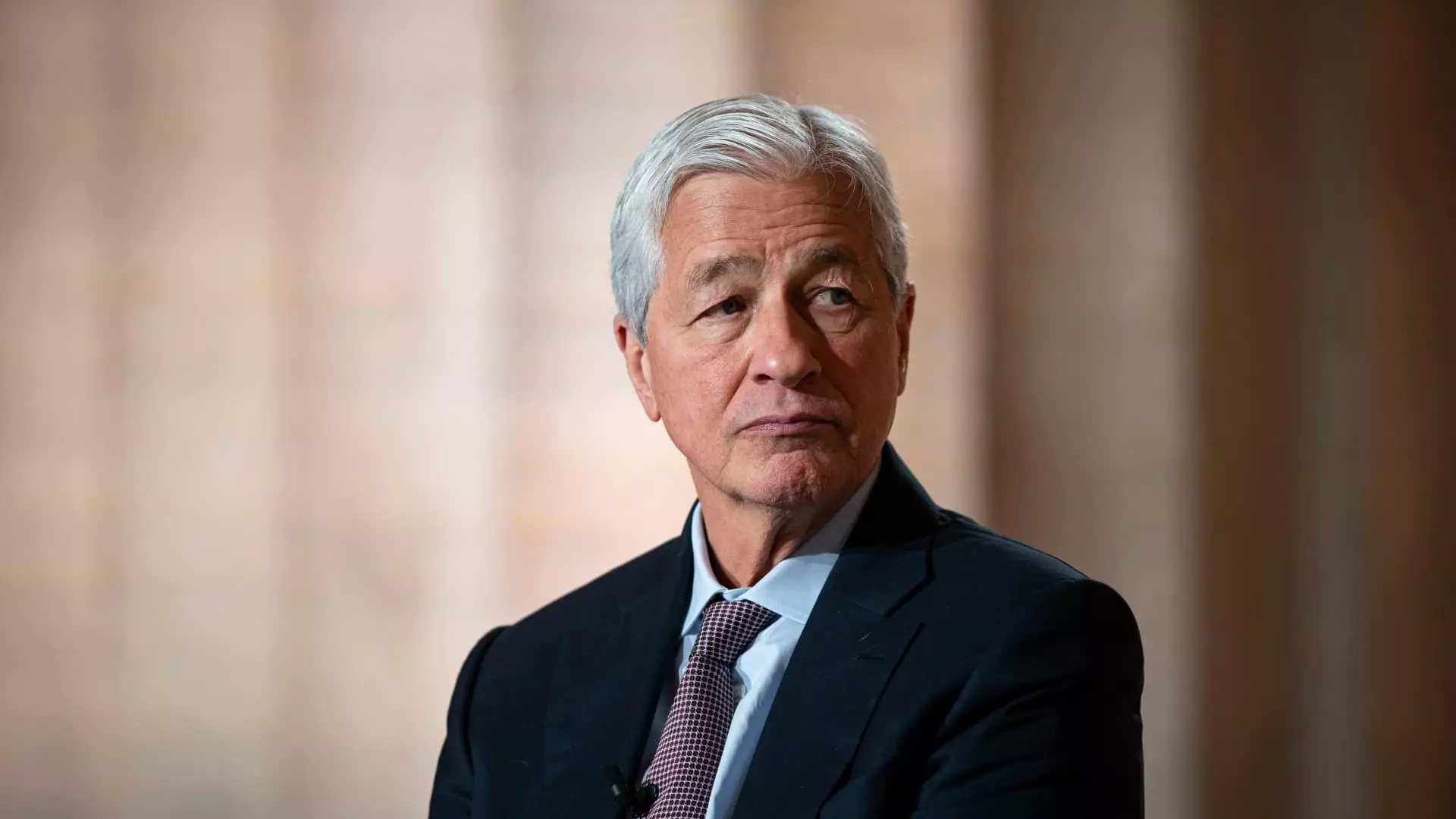As JPMorgan Chase gears up to unveil its first-quarter earnings, the entire financial sector is holding its breath. The expected earnings per share stand at $4.61, alongside projected revenues of $44.11 billion, based on information from LSEG. By being the first major U.S. bank to disclose earnings for this period, JPMorgan Chase is essentially setting the stage for how other institutions will respond in the face of growing economic trepidations. The urgency to understand how consumers, businesses, and overall market sentiment are coping in this environment has never been more pronounced.
The Shadow of Trade Tensions
With economic indicators reflecting increased uncertainty, particularly following President Trump’s significant changes in trade policy, the implications for businesses are substantial. Trump’s recent moves to escalate global trade tensions introduced a looming sense of instability that is likely weighing on corporate performance. Jamie Dimon, the influential CEO of JPMorgan, expressed concerns that the aggressive tariff strategies might precipitate an economic downturn. While Trump’s decision to reduce proposed tariff rates—with the exception of China—may temporarily alleviate some anxieties, the underlying questions about long-term economic health persist.
Recession Fears Affecting Investor Sentiment
Despite a backward-looking report period, the pervasive atmosphere of recession fears has rattled investors, overshadowing past performances with anxiety about future viability. This sentiment is not unfounded; historical patterns indicate that persistent trade tensions often cause investors to retreat, resulting in market volatility. Bank executives are faced with the dual challenge of reassuring stakeholders while navigating this turbulent landscape. While the past quarter ended before the much-publicized “Liberation Day” announcement, reliance on historical data may render discussions of past performance increasingly irrelevant in an unpredictable market.
Investment Banking: A Double-Edged Sword
The combination of increased economic uncertainty and heightened investor caution can muddy the waters for investment banking activities. IPO listings and merger advisories, typically indicators of financial health, are likely to suffer under these circumstances. Yet, there is a flip side: Wall Street’s trading desks could see a surge in trading volume, presenting opportunities to capitalize on volatility. This dichotomy makes it challenging for institutions to balance caution with proactive strategies; investment banks might excel in one area while faltering in another.
The Market’s Inquisitive Gaze
JPMorgan Chase’s earnings report will inevitably attract scrutiny, not only for the numbers but also for the insights it will provide into wider economic conditions. Investors and analysts alike will be watching closely, not merely for revenue figures, but for commentary from Dimon regarding the bank’s outlook amid a changing global landscape. In these uncertain times, such analyses can serve as barometers for the entire financial sector. As this anticipated report looms ever closer, the stakes are undeniably high, shaping the narratives around not just JPMorgan, but the larger economy as well.

